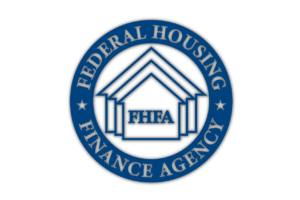Federal / Agency News

White House Announces New Appointments to the CDFI Fund’s Advisory Board
The White House announced new appointments by President Biden to the Community Development Advisory Board (the Advisory Board), a 15-person federal advisory committee to the U.S. Department of the Treasury’s Community Development Financial Institutions Fund (CDFI Fund).

HUD Announces Closeout Deadline for 2015 HOME Grants – Sept. 30, 2024
HOME Investment Partnerships Program (HOME) grants are subject to the grant closeout requirements at 2 CFR 200.344, which require all grants to be closed out within one year of the end of the grant’s period of performance.

Novogradac Announces New LIHTC Equity Page Providing More Detailed Pricing Data
Novogradac announced it is providing an additional benefit for LIHTC stakeholders. In addition to Novogradac’s LIHTC equity pricing page, which provides a nationwide average of equity price per credit, a new page, available upon request, offers data for regions and some states.

HUD Publishes Notice Establishing DDAs, QCTs for 2025
The U.S. Department of Housing and Urban Development published a notice in the Federal Register establishing 2025 difficult development areas (DDAs) and qualified census tracts (QCTs) for LIHTCs.

MO, MA and PA Make Big Changes to State Credits
MO, MA and PA Make Big Changes to State Credits

LIHTC Qualified Contract Changes
HUD recently announced a significant policy change that will impact developers involved in the LIHTC program.

EPA Funds for Affordable Housing Developers
The EPA’s $27 billion Greenhouse Gas Reduction Fund (GGRF), funded through the Inflation Reduction Act, offers significant opportunities for affordable housing multifamily rental developers.

New GSE Housing Goals Proposed by FHFA
FHFA recently proposed new housing goals for Fannie Mae and Freddie Mac, set to be in place from 2025 through 2027.

Rising Insurance Costs Major Impact on Housing Supply
Affordable housing developers are facing significant challenges due to the rising cost of property insurance as outlaid in a recent New York Times article.

Section 811 Project Rental Assistance Awards
The Biden-Harris administration awarded nearly $140 million to expand affordable housing for people with disabilities through the Department of Housing and Urban Development’s Section 811 Project Rental Assistance program.

Leveraging Section 108 to Build More Housing
The Department of Housing and Urban Development has launched the Legacy Challenge to encourage communities to use Section 108 through the Community Development Block Grants to build housing.

New Subsidy to Boost Affordable Housing Development
A report from The Providence Journal highlights a new pilot initiative by the Providence Affordable Housing Trust Fund.